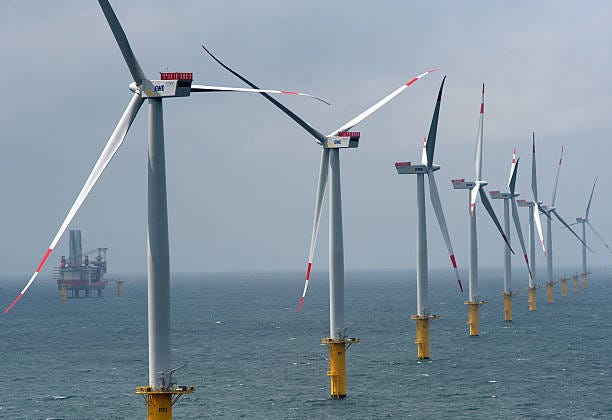
“Louisiana is the one state where nobody gets depressed after Christmas because we roll into king cake season…That’s when many of our bakeries make essentially all their profits…Mardi Gras is, essentially, a billion-dollar enterprise…The state makes significantly more money than it spends, and we get to all have a good time and once again host the rest of the world.”
Those were some closing thoughts from Guy Williams, President of Gulf Coast Bank and Trust. Today, Newell Normand and Guy Williams spoke about a handful of hot economic topics that concern the Bayou State.
On one hand, the state sees massive seasonal tourism bumps, like the current Super Bowl-to-Mardi-Gras stretch. But Louisiana also prides itself as a highly industrial state, and the success of its industries can depend on federal support.
One emerging industry that’s of particular interest to the state is offshore wind. While many consider offshore wind a large opportunity for Louisiana, Trump’s recent executive order to pause offshore wind lease sales makes his stance clear: Offshore wind won’t receive much federal aid over the next four years.
Williams explains Trump’s mindset, “Louisiana was gearing up to be a big leader in offshore wind, and unfortunately, reality is entering the picture. Offshore wind is seemingly risk-free in that you don't you don't have the same onshore challenges. But what the president and his advisors are looking at is that it’s incredibly expensive. It's about three times as expensive as onshore wind.”
“Offshore wind just doesn't make any economic sense, particularly in the Gulf,” says Williams. “The wind doesn't blow that much. It would be nice if it did make economic sense. But at this moment, the economics without a big subsidy just aren't there.
So what goes into this expense? The cost doesn’t just include the infrastructure to capture wind energy, it includes the infrastructure to store it.
“Wind power is something America has always used,” says Williams. “If you think back to the classic Westerns… every single farm out West had a windmill. They make tremendous sense in places where the wind blows a lot. The economics of wind are real, but they work only in certain places. Now the missing element is storage. And if you want to promote wind power, you have to have storage because there are times when the wind's blowing. It's generating lots of power, but the grid literally doesn't want it.”
Could it really be that hard to harvest excess wind power?
Williams says, “You have to convert it to something else. The simplest conversion is to batteries. But battery banks are very expensive. They're not environmentally friendly, either, because you have a lot of minerals that go into them. And a lot of them come from places that aren't our allies. The other ways to store electricity are to use physics and to store it by elevating water. You literally pump water up a hill into a high reservoir, and then it will come back down later as a turbine power. Or you can use it to do things like desalinate water…But it's more expensive to desalinate ocean water than it would be to build a pipeline from the Mississippi to California.
Finally, Williams and Normand discussed whether it might be worth it to subsidize the effort.
Williams remained skeptical, saying, “Once you get into subsidies, it's hard to ever get out of them because the people receiving the subsidies become dependent."

